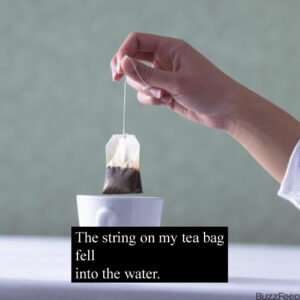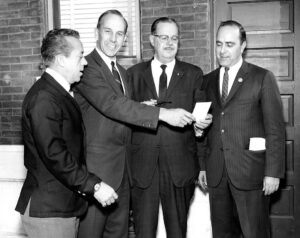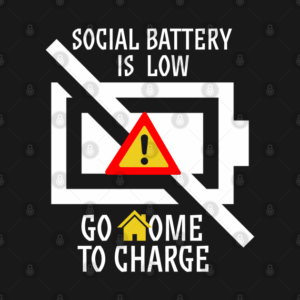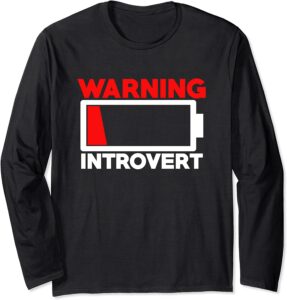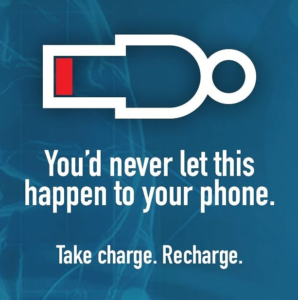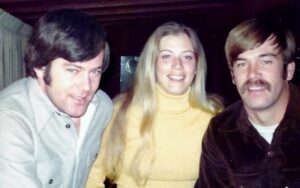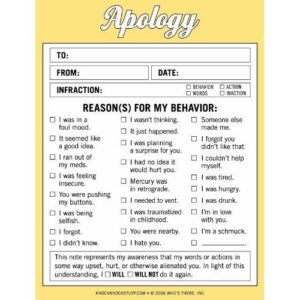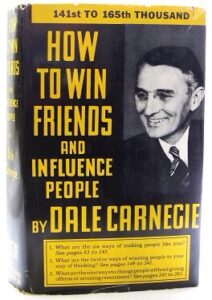By Suzanne Sparrow Watson
Confession: I am a life-long 49er’s fan. My husband is a life-long Rams fan. It has made for some interesting (and heated) discussions over the years. Although I’d love to see him happy about his team winning the Super Bowl today, I just can’t bring myself to root for our arch enemy. Besides, I am an enthusiastic fan of Joe Burrow. If you’re looking for a reason to care about the outcome of today’s game, I am re-posting my 2020 blog about Joe Burrow, with a wonderful update to the story.
 30 million Americans will be watching the College Football Championship game tonight between LSU and Clemson. It is slated to be one of the most exciting playoff games in recent history – both teams are undefeated and have stand out quarterbacks. Hopefully it will live up to the expectations. But aside from the thrill of who will win the Championship, many people have found a different reason to take interest in the game – LSU’s quarterback, Joe Burrow. In this age of bad-boy athletes where the headlines shout of domestic violence, gun shots, and cheating scandals, Joe Burrow is the soothing balm that reminds us of just how good college sports can be. This one person, in one night, brought dignity, kindness and generosity to the forefront. His story bears telling and re-telling.
30 million Americans will be watching the College Football Championship game tonight between LSU and Clemson. It is slated to be one of the most exciting playoff games in recent history – both teams are undefeated and have stand out quarterbacks. Hopefully it will live up to the expectations. But aside from the thrill of who will win the Championship, many people have found a different reason to take interest in the game – LSU’s quarterback, Joe Burrow. In this age of bad-boy athletes where the headlines shout of domestic violence, gun shots, and cheating scandals, Joe Burrow is the soothing balm that reminds us of just how good college sports can be. This one person, in one night, brought dignity, kindness and generosity to the forefront. His story bears telling and re-telling.
Joe Burrow hails from one of the most impoverished areas in the United States – southeast Ohio. His hometown is Athens, a part of Appalachia that has yet to see significant benefit from the soaring stock market and lower unemployment rate. Joe is a product of the local high school and was heavily recruited upon graduation. He attended Ohio State, where he red-shirted, obtained his BA in Family Resource Management, and then with two years eligibility remaining, decided to transfer to a school where he could get more playing time. In May 2018 he signed on with LSU and their charismatic coach, Ed Orgeron. The rest is history.
 Fast forward to December 14, 2019. Burrow was one of four finalists for the Heisman Trophy and, in a surprise to no one, he not only took home the trophy but did so by a wider margin than any winner in history, securing 93.8 percent of the possible points. That alone would make him stand out in anyone’s book. But it’s what he did next that swayed hearts and minds. In his acceptance speech he not only thanked the usual people – his teammates, parents and coaches (including those from Ohio State), he took the opportunity of being on the big stage to remember those who have not been as fortunate as he. Mid-way through his speech he said the following: “Coming from southeast Ohio, it’s a very impoverished area. The poverty rate is almost two times the national average. There are so many people there that don’t have a lot. I’m up here for all those kids in Athens and Athens County that go home—not a lot of food on the table, hungry after school. You guys can be up here too.” He was crying, and I’m guessing anyone watching cried right along with him. It was a thoughtful moment – surely one to make everyone who ever had anything to do with this young man feel proud. His dad commented the next morning that he received over 500 texts and the overwhelming majority of them congratulated him on Joe’s thoughtfulness, not the piece of hardware he’d won. But it’s what happened next that highlights the positive impact just one high-profile athlete can have.
Fast forward to December 14, 2019. Burrow was one of four finalists for the Heisman Trophy and, in a surprise to no one, he not only took home the trophy but did so by a wider margin than any winner in history, securing 93.8 percent of the possible points. That alone would make him stand out in anyone’s book. But it’s what he did next that swayed hearts and minds. In his acceptance speech he not only thanked the usual people – his teammates, parents and coaches (including those from Ohio State), he took the opportunity of being on the big stage to remember those who have not been as fortunate as he. Mid-way through his speech he said the following: “Coming from southeast Ohio, it’s a very impoverished area. The poverty rate is almost two times the national average. There are so many people there that don’t have a lot. I’m up here for all those kids in Athens and Athens County that go home—not a lot of food on the table, hungry after school. You guys can be up here too.” He was crying, and I’m guessing anyone watching cried right along with him. It was a thoughtful moment – surely one to make everyone who ever had anything to do with this young man feel proud. His dad commented the next morning that he received over 500 texts and the overwhelming majority of them congratulated him on Joe’s thoughtfulness, not the piece of hardware he’d won. But it’s what happened next that highlights the positive impact just one high-profile athlete can have.
The following morning, Sunday, December 15th, Athens High and Ohio grad, Will Drabold, was so moved by Joe’s speech that he decided to set up a fundraiser on Facebook for the all-volunteer Athens County Food Pantry with a goal of $1,000. By the end of that first day, he had collected more than $50,000. Major media outlets picked up on the story and by Monday morning, the total donations surged to $80,000, which happens to be the annual budget the Food Pantry. By Tuesday, December 17th, the fund had collected more than $350,000. Drabold raised the goal to $500,000 – why not shoot for the stars?
On Wednesday, at a local middle school, a teacher played Burrow’s Heisman speech for her students. When they finished watching the speech, she said she saw “a lot of bug eyes, like, “Wow, he’s talking about us.” They sat down to write letters to Burrow. One of the boys in the class turned this in:
Dear Joe Burrow,
Thank you for showing me and other children that no matter where you’re from or your life story, if you work hard, you can achieve greatness. Also, thank you for giving back to your community. You have inspired me to not be embarrassed by my life story and work hard to achieve my goals. Again, thank you very much.
The student signed his name, and under it wrote: “Just a kid from Southeast Ohio.”
On Friday, December 20th, donations to the food bank were close to $450,000. Joe Burrow, meanwhile, accepted another token of his hard work and dedication that day – his master’s degree in Liberal Arts from LSU. By Sunday the total for the Food Bank topped out at more than $475,00. Karin Bright, president of the food bank’s board, was asked about the effect of the fundraising on the organization – “I truly hope this opens a conversation across the country and we finally address the issues of hunger and food insecurity in this country. We’re better than this. People in this great country should not be going to bed hungry. And for Joe Burrow to put such a personal face on it—his classmates at Athens, he knew, were going hungry. And he remembered that at this momentous time in his life.” She said the funds that have been raised are a sacred trust and will ensure that it is allocated with utmost respect for those who gave it.
 As of this morning, game day, the total donations are $503,211. I don’t know who will win the game tonight, but I do know that Joe Burrow has already made more of an impact off the field than on it. Yes, thousands of people in Athens County will be less hungry this year, but really, all of us have been given a gift from this upstanding young man. He has lifted our spirits, caused us to remember that the American people are generous and kind. He provided a shining example of what college athletes can be. Joe Burrow is not just a kid from southeast Ohio – he is an inspiration to us all.
As of this morning, game day, the total donations are $503,211. I don’t know who will win the game tonight, but I do know that Joe Burrow has already made more of an impact off the field than on it. Yes, thousands of people in Athens County will be less hungry this year, but really, all of us have been given a gift from this upstanding young man. He has lifted our spirits, caused us to remember that the American people are generous and kind. He provided a shining example of what college athletes can be. Joe Burrow is not just a kid from southeast Ohio – he is an inspiration to us all.
So, for tonight’s game I say, Geaux, Joe!
 2022 Update: Joe Burrow won the National Championship game. He also lent his name to the Athens County Food Pantry, so one can directly donate to the Joe Burrow Hunger Relief Fund. It has been so successful that the organization has an endowment of $1.5 million dollars and provides food for over 400 families each month. With the success of the Bengals this season, and specifically with their rather miraculous accent to the Super Bowl, donations have been pouring in. The fund has received 1,272 gifts totaling $89,571 since the AFC Championship game Jan. 30. The grassroots campaign has seen a majority of the gifts (more than 330) at $9 in tribute to Burrow’s jersey number. Corporations are now chipping in and if the Bengals win the Super Bowl today who knows how many families will end up benefiting? So, for me, I know the answer to Who Dey? It’s Joe Burrow.
2022 Update: Joe Burrow won the National Championship game. He also lent his name to the Athens County Food Pantry, so one can directly donate to the Joe Burrow Hunger Relief Fund. It has been so successful that the organization has an endowment of $1.5 million dollars and provides food for over 400 families each month. With the success of the Bengals this season, and specifically with their rather miraculous accent to the Super Bowl, donations have been pouring in. The fund has received 1,272 gifts totaling $89,571 since the AFC Championship game Jan. 30. The grassroots campaign has seen a majority of the gifts (more than 330) at $9 in tribute to Burrow’s jersey number. Corporations are now chipping in and if the Bengals win the Super Bowl today who knows how many families will end up benefiting? So, for me, I know the answer to Who Dey? It’s Joe Burrow.
 In the classic movie, Sunset Boulevard, a screenwriter meets an aging move star and says, “You’re Norma Desmond. Once, you were big.” To which she replies, “I AM big, it’s the pictures that got small.” Never has a more prescient comment been uttered, although I’m not sure Ms. Desmond or anyone else could have predicted just how small they would get. Sunset Boulevard was filmed in 1950, when everyone went to movie theaters and movie stars were idolized. Fast forward to 2017, The Hollywood Reporter estimated that movie attendance in North America was at a 27-year low. And then 2020 hit. No one went anywhere, much less to crowded movie theaters. People stayed home, snuggled up in their jammies, baking bread and watched a streaming service. Netflix alone added more than ten million subscribers in the second quarter of that year.
In the classic movie, Sunset Boulevard, a screenwriter meets an aging move star and says, “You’re Norma Desmond. Once, you were big.” To which she replies, “I AM big, it’s the pictures that got small.” Never has a more prescient comment been uttered, although I’m not sure Ms. Desmond or anyone else could have predicted just how small they would get. Sunset Boulevard was filmed in 1950, when everyone went to movie theaters and movie stars were idolized. Fast forward to 2017, The Hollywood Reporter estimated that movie attendance in North America was at a 27-year low. And then 2020 hit. No one went anywhere, much less to crowded movie theaters. People stayed home, snuggled up in their jammies, baking bread and watched a streaming service. Netflix alone added more than ten million subscribers in the second quarter of that year. Ten pictures were nominated this year and in order to see all of them you would need subscriptions to Amazon Prime, Netflix, You Tube, Vudu, HBO Max and Disney+. Those subscriptions would cost you $115 per month. What average family can afford that? Apparently not many, because the viewership for the Oscar-nominated films is down again this year. Partly because people don’t have every streaming service and partly because the movies are, well, terrible. One Hollywood insider said that the movie studios are no longer making movies for American audiences because they make much more from international ticket sales, specifically in Asia. Thus, the glut of Marvel action films.
Ten pictures were nominated this year and in order to see all of them you would need subscriptions to Amazon Prime, Netflix, You Tube, Vudu, HBO Max and Disney+. Those subscriptions would cost you $115 per month. What average family can afford that? Apparently not many, because the viewership for the Oscar-nominated films is down again this year. Partly because people don’t have every streaming service and partly because the movies are, well, terrible. One Hollywood insider said that the movie studios are no longer making movies for American audiences because they make much more from international ticket sales, specifically in Asia. Thus, the glut of Marvel action films.
